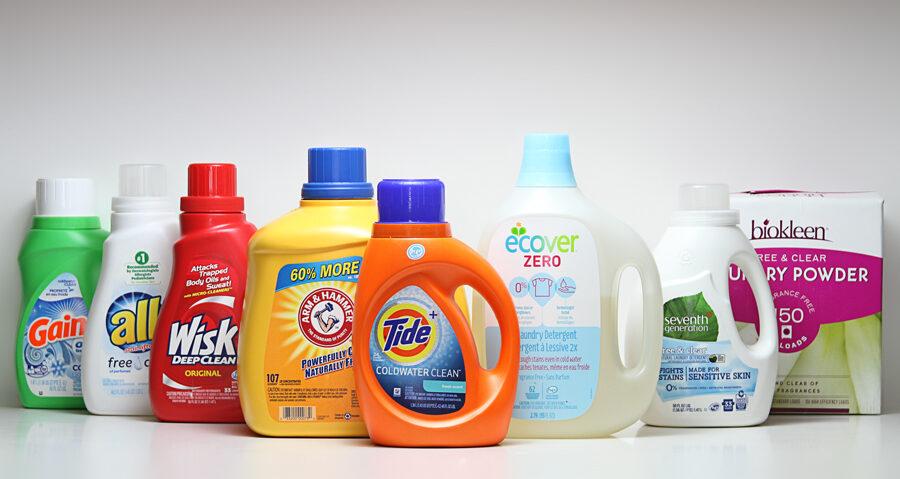
Synthetic washing agents.
Synthetic laundry detergents include all chemicals, in addition to natural detergents, which have washing capacity, but they are not soaps.
These substances and washing agents made from them are usually called detergents, although the term "detergent", used in standards and EPS classification, limited to ready-made washing and cleaning agents, based on synthetic raw materials.
Detergents have many valuable properties, different from soaps:
• show much better washing ability;
• their aqueous solutions have the ability to wet the surfaces of various materials well, including plastics; this property supports the washing of materials, especially of synthetic fibers, which are much worse wetted by aqueous soap solutions;
• the advantage of many detergents is that the pH of the washing baths made of them is neutral, unlike soaps, whose solutions are alkaline;
• neutral detergent causes, that they are perfect for washing wool, which is damaged when washing in alkaline solutions;
• an important feature of detergents is resistance to hard water, the ability to dissolve in cool or lukewarm water and high detergency at low temperatures.
In practice, the abovementioned properties of detergents contributed to the displacement of soap as a washing agent. Mainly washing agents are made of synthetic surfactants, to a much lesser extent washing agents. Finished preparations may be in the form of powders, liquids, pastes and molded solids. A suitable detergent for washing or washing is created as a result of confectioning, during which it gains properties adapted to the consumer's requirements and the type of washed fibers.